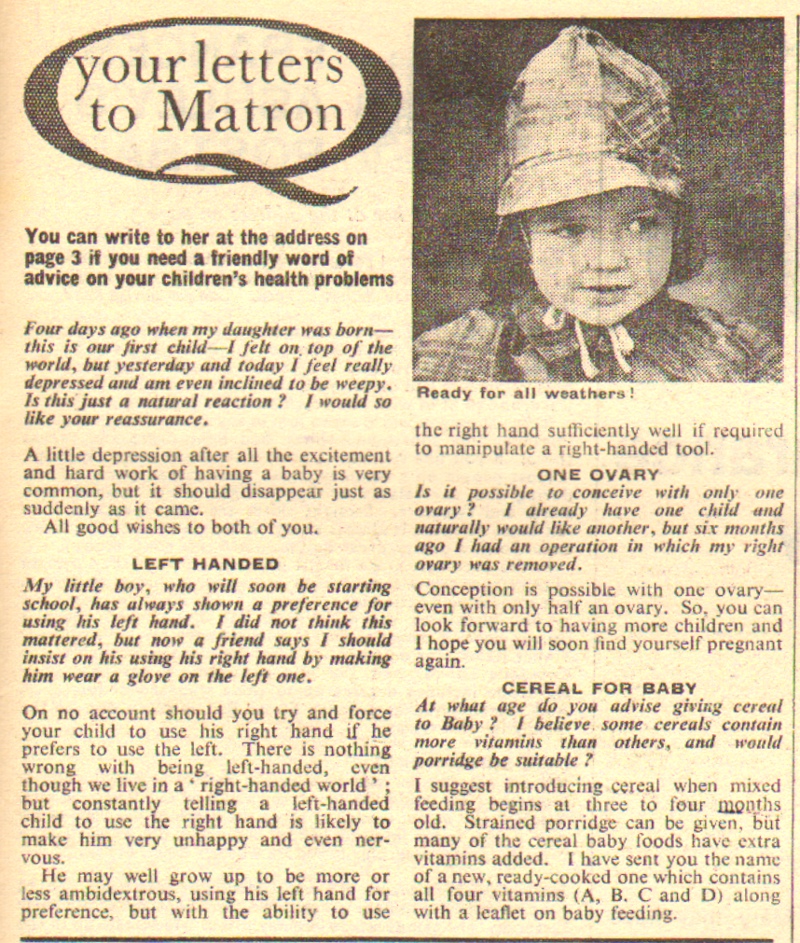Gypsy Creams
One Ovary

Woman's Weekly / 16th April 1965
Nowadays, expectant mothers can drown in a sea of advisory books (some of which cause more noise than others), but back in 1965, it seems that getting information could be a real problem. Although traditionally, mothers could rely on family networks for information and support, this information wasn’t always reliable. It’s a good thing that this advice column existed, but the advice given for post-natal depression is of the one-step-forward-two-steps-back variety. Yes, there’s an acknowledgement that the condition exists, but there’s also the dangerous assertion that it’ll go away by itself and the glib wish of good luck. However, it’s not surprising, because as the linked article states, post-natal depression is still not fully understood, over 45 years later.
Another indicator of just how times have changed is the letter about having a left-handed son; although the advice is correct, just the fact that the mother felt compelled to ask shows how long prejudice about being left-handed remained in British society. Also, the idea that a woman would go through surgery to remove an ovary and NOT ask questions about how it would affect her fertility shows the woeful lack of confidence that some women had when dealing with the medical profession, as well as how no-one dealing with this woman felt the need to discuss this issue with her. Luckily, we’ve made progress with this in the last 45 years as well.
Tags: health, pregnancy, social history
3 Comments
Tanya Jones on 13 March 2012 @ 1am
Hopefully the letter writer did indeed get better quickly, but I would have been happier with some advice to seek help if she didn’t improve within a certain time period!
Martin Fenton on 25 March 2012 @ 7pm
Interesting advice to the parent of the left-handed child there. To put this into some kind of context, when my sister started school in 1971, she was taught out of her left-handed tendencies as it was “wrong.”
Nine years later, when I started at the same school, there was no such problem until I learned to play a stringed instrument at the age of 8. Then my left-handed instincts were quashed, largely on the practical grounds that I was sharing an instrument with a right-handed pupil and the school didn’t possess a left-hand-strung equivalent.
(Oddly, it seems that neither my father – born 1943 – nor mother – born 1944 – had any similar problems. I’m the left-handed child of two left-handed parents. We’re a sinister lot.)
Estelle on 12 March 2012 @ 4pm
Probably the baby blues rather than PND – I know at 3 days after birth I was a weeping mess!